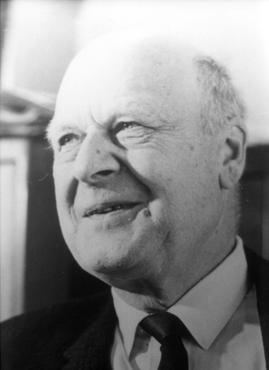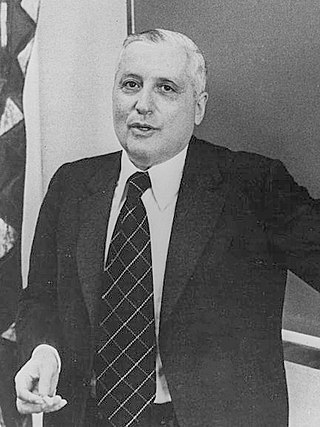Related Research Articles

Entropy is a scientific concept that is most commonly associated with a state of disorder, randomness, or uncertainty. The term and the concept are used in diverse fields, from classical thermodynamics, where it was first recognized, to the microscopic description of nature in statistical physics, and to the principles of information theory. It has found far-ranging applications in chemistry and physics, in biological systems and their relation to life, in cosmology, economics, sociology, weather science, climate change, and information systems including the transmission of information in telecommunication.

Physical chemistry is the study of macroscopic and microscopic phenomena in chemical systems in terms of the principles, practices, and concepts of physics such as motion, energy, force, time, thermodynamics, quantum chemistry, statistical mechanics, analytical dynamics and chemical equilibria.

Lars Onsager was an American physical chemist and theoretical physicist. He held the Gibbs Professorship of Theoretical Chemistry at Yale University. He was awarded the Nobel Prize in Chemistry in 1968.

Josiah Willard Gibbs was an American scientist who made significant theoretical contributions to physics, chemistry, and mathematics. His work on the applications of thermodynamics was instrumental in transforming physical chemistry into a rigorous deductive science. Together with James Clerk Maxwell and Ludwig Boltzmann, he created statistical mechanics, explaining the laws of thermodynamics as consequences of the statistical properties of ensembles of the possible states of a physical system composed of many particles. Gibbs also worked on the application of Maxwell's equations to problems in physical optics. As a mathematician, he created modern vector calculus and described the Gibbs phenomenon in the theory of Fourier analysis.

A timeline of events in the history of thermodynamics.

Viscount Ilya Romanovich Prigogine was a Belgian physical chemist of Russian-Jewish origin, noted for his work on dissipative structures, complex systems, and irreversibility.

Non-equilibrium thermodynamics is a branch of thermodynamics that deals with physical systems that are not in thermodynamic equilibrium but can be described in terms of macroscopic quantities that represent an extrapolation of the variables used to specify the system in thermodynamic equilibrium. Non-equilibrium thermodynamics is concerned with transport processes and with the rates of chemical reactions.
Sir Ralph Howard Fowler was a British physicist and astronomer and physical chemist.
The Jarzynski equality (JE) is an equation in statistical mechanics that relates free energy differences between two states and the irreversible work along an ensemble of trajectories joining the same states. It is named after the physicist Christopher Jarzynski who derived it in 1996. Fundamentally, the Jarzynski equality points to the fact that the fluctuations in the work satisfy certain constraints separately from the average value of the work that occurs in some process.
Herbert Bernard Callen was an American physicist specializing in thermodynamics and statistical mechanics. He is considered one of the founders of the modern theory of irreversible thermodynamics, and is the author of the classic textbook Thermodynamics and an Introduction to Thermostatistics, published in two editions. During World War II, his services were invoked in the theoretical division of the Manhattan Project.

Denis James Evans, is an Australian scientist who is an Emeritus Professor at the Australian National University and Honorary Professor at The University of Queensland. He is widely recognised for his contributions to nonequilibrium thermodynamics and nonequilibrium statistical mechanics and the simulation of nonequilibrium fluids.
The principle of microscopic reversibility in physics and chemistry is twofold:
Michael Ellis Fisher was an English physicist, as well as chemist and mathematician, known for his many seminal contributions to statistical physics, including but not restricted to the theory of phase transitions and critical phenomena. He was the Horace White Professor of Chemistry, Physics, and Mathematics at Cornell University. Later he moved to the University of Maryland College of Computer, Mathematical, and Natural Sciences, where he was University System of Maryland Regents Professor, a Distinguished University Professor and Distinguished Scholar-Teacher.

Giorgio Parisi is an Italian theoretical physicist, whose research has focused on quantum field theory, statistical mechanics and complex systems. His best known contributions are the QCD evolution equations for parton densities, obtained with Guido Altarelli, known as the Altarelli–Parisi or DGLAP equations, the exact solution of the Sherrington–Kirkpatrick model of spin glasses, the Kardar–Parisi–Zhang equation describing dynamic scaling of growing interfaces, and the study of whirling flocks of birds. He was awarded the 2021 Nobel Prize in Physics jointly with Klaus Hasselmann and Syukuro Manabe for groundbreaking contributions to theory of complex systems, in particular "for the discovery of the interplay of disorder and fluctuations in physical systems from atomic to planetary scales".
Peter Hänggi is a theoretical physicist from Switzerland, Professor of Theoretical Physics at the University of Augsburg. He is best known for his original works on Brownian motion and the Brownian motor concept, stochastic resonance and dissipative systems. Other topics include, driven quantum tunneling, such as the discovery of coherent destruction of tunneling (CDT), phononics, relativistic statistical mechanics and the foundations of classical and quantum thermodynamics.
Energy dissipation and entropy production extremal principles are ideas developed within non-equilibrium thermodynamics that attempt to predict the likely steady states and dynamical structures that a physical system might show. The search for extremum principles for non-equilibrium thermodynamics follows their successful use in other branches of physics. According to Kondepudi (2008), and to Grandy (2008), there is no general rule that provides an extremum principle that governs the evolution of a far-from-equilibrium system to a steady state. According to Glansdorff and Prigogine, irreversible processes usually are not governed by global extremal principles because description of their evolution requires differential equations which are not self-adjoint, but local extremal principles can be used for local solutions. Lebon Jou and Casas-Vásquez (2008) state that "In non-equilibrium ... it is generally not possible to construct thermodynamic potentials depending on the whole set of variables". Šilhavý (1997) offers the opinion that "... the extremum principles of thermodynamics ... do not have any counterpart for [non-equilibrium] steady states ." It follows that any general extremal principle for a non-equilibrium problem will need to refer in some detail to the constraints that are specific for the structure of the system considered in the problem.
The Onsager Medal (Onsagermedaljen) is a scholastic presentation awarded to researchers in one or more subject areas of chemistry, physics or mathematics. The medal is awarded in memory of Lars Onsager, who received Nobel Prize in Chemistry in 1968. The medal, designed by Harald Wårvik, commemorates the efforts of a single individual as chosen by the Onsager committee at the Norwegian University of Science and Technology (NTNU). The professorship awardee is expected to spend 3–6 months working at NTNU. The lectureship awardee will give a lecture at the university.
The Lars Onsager Prize is a prize in theoretical statistical physics awarded annually by the American Physical Society. Prize recipients receive a medal, certificate, and $10,000. It was established in 1993 by Drs. Russell and Marian Donnelly in memory of Lars Onsager.
Stochastic thermodynamics is an emergent field of research in statistical mechanics that uses stochastic variables to better understand the non-equilibrium dynamics present in many microscopic systems such as colloidal particles, biopolymers, enzymes, and molecular motors.
Sebastian Deffner is a German theoretical physicist and a professor in the Department of Physics at the University of Maryland, Baltimore County (UMBC). He is known for his contributions to the development of quantum thermodynamics with focus on the thermodynamics of quantum information, quantum speed limit for open systems, quantum control and shortcuts to adiabaticity.
References
- 1 2 3 4 "Department of Chemistry and Biochemistry – University of Maryland, College Park MD Christopher Jarzynski - Department of Chemistry and Biochemistry" . Retrieved 2019-08-14.
- 1 2 Ying, Irene (2018-11-06). "UMD's Christopher Jarzynski Awarded American Physical Society's Lars Onsager Prize". College of Computer, Mathematical, and Natural Sciences. Archived from the original on 2019-08-14. Retrieved 2019-08-14.
- 1 2 abbyr (2020-04-27). "UMD's Christopher Jarzynski Elected to the National Academy of Sciences". College of Computer, Mathematical, and Natural Sciences. Archived from the original on 2020-06-16. Retrieved 2020-04-30.
- 1 2 3 "2018 Stanley Corrsin Award Recipient". www.aps.org. Retrieved 2019-08-14.
- ↑ "The Nobel Prize in Physics 2018". NobelPrize.org. Retrieved 2019-08-14.
- ↑ Jarzynski, Christopher (1987). An experimental search for 1.7 MEV axions in nuclear decays "the detector from hell". Princeton, NJ: Department of Physics.
- 1 2 3 Jarzynski, Christopher. "Curriculum Vitae" (PDF). Retrieved 2019-08-14.
- ↑ "Christopher Jarzynski - The Mathematics Genealogy Project". www.genealogy.math.ndsu.nodak.edu. Retrieved 2019-08-14.
- ↑ "2019 Lars Onsager Prize recipient". www.aps.org. Retrieved 2020-04-24.
- ↑ "John Simon Guggenheim Foundation | Christopher Jarzynski" . Retrieved 2020-04-30.
- ↑ "2020 Simons Fellows in Mathematics and Theoretical Physics Announced". Simons Foundation. 2020-02-21. Retrieved 2020-04-30.